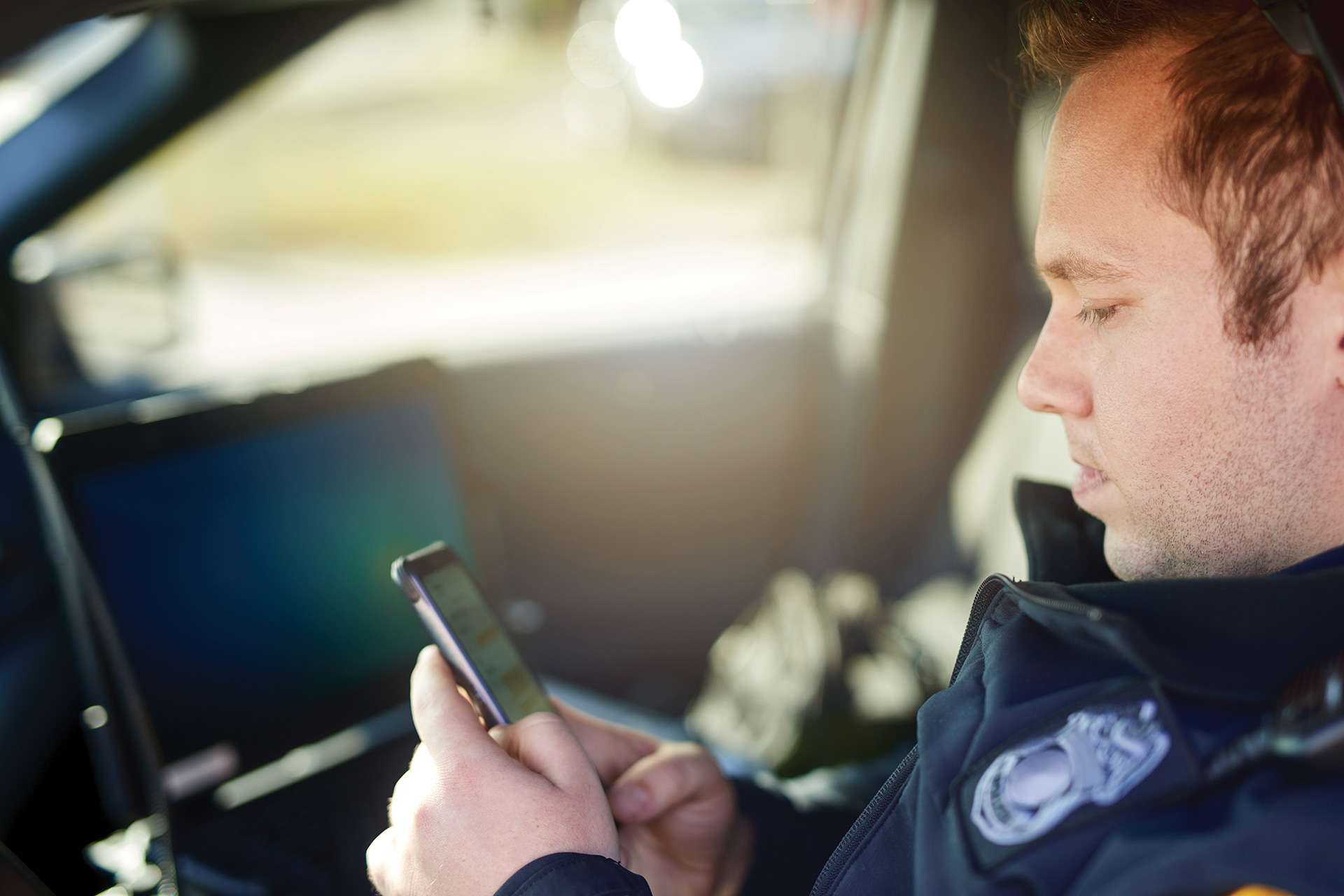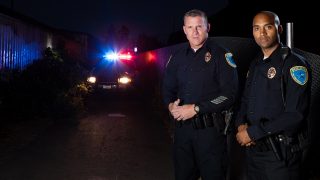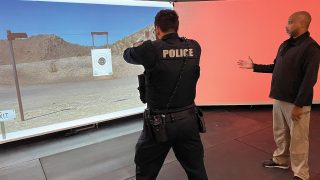
One of the most vital needs for any police executive, manager or supervisor is to proactively work with the leaders of their agency to create mechanisms for wellness for officers and dispatchers from recruitment to retirement.
An essential component for wellness, trauma recovery, support and assistance is an effective and trusted peer support team. Without it, an agency is crippled in its efforts to improve organizational wellness, individual success, professional service and positive community impact.
Why peer support?
Peer support in law enforcement is a powerful resource in addressing stress management, trauma recovery, mental health concerns and suicide prevention, as well as overall officer safety, wellness and resilience.
In an article from the International Association of Chiefs of Police titled “Peer Support as a Powerful Tool in Law Enforcement Suicide Prevention,” a 2018 survey of police officers found that 90% of respondents who had used peer support reported that it was helpful to very helpful. Further, 80% reported they would seek support again if needed, and nearly 90% stated they would recommend peer support to a colleague. Within my own agency, I know of at least three officers who would have committed suicide were it not for peer support.
Peer support members do not diagnose people or express what is wrong; they listen and offer support in caring and meaningful ways that are non-judgmental and completely confidential.
Additionally, more than half of the officers who connected with peer support indicated that these services helped them perform their job better or improved their personal life. According to Sherri Martin, national wellness director of the National Fraternal Order of Police, “The biggest choosing of services for police officers is peer support. Three out of four officers would rather go to peer support than any other kind of services out there.”
If an agency has not developed and supported proactive peer support engagement, where are all those officers and dispatchers going to go for help when the inevitable traumas of the profession are experienced? The evidence shows they are likely to suffer in silence, which we know can often have tragic consequences for the officer, the agency, as well as for the community.
Peer support is a vital role for every member of an agency. Whether assigned to the peer support team or not, every officer has the moral responsibility to support, care for and assist their colleagues, who they depend upon in order to go home safe after each shift.
What peers and leaders can do
Peers contribute by taking a personal interest in the well-being of their colleagues, being proactive in positive engagements and reaching out to them. They can share positive recovery-oriented messages, help to decrease barriers to seeking help, serve as mentors and raise awareness of ways to heal and recover from the traumas of work, such as with eye movement desensitization and reprocessing (EMDR) with a trauma professional.
Peers can normalize help-seeking behaviors and reinforce that it is all right to be human and to be distressed by what we experience. They strengthen healthy coping skills, including resiliency and connectedness, and they can provide support following a work-related or personal crisis.
Leadership can demonstrate support by clear, consistent messaging that peer support is a vital function for the organization and each individual officer/dispatcher. The message throughout the chain of command should be, “We need a healthy you. We need a healthy you at home, and we need a healthy you at work. It’s OK for you to seek out peer support. We want you to talk with them because they have been through it and understand the ups and downs you’re experiencing. We’re all united by our shared work experiences and trauma, and we are in the best position to help each other get through it. It’s expected that you’re going to need some help at times throughout your career, and we absolutely support and encourage that.”
Leaders need to also establish standard operating procedures for peer support (which includes chaplains as well), assessing and allocating appropriate resources, and trusting peer support teams to follow standards for confidentiality, as well as reinforcing the need for confidentiality.
Structure of peer support
Most peer support teams are initially established to be reactive, to react after an officer/dispatcher has reached out for help. However, it’s imperative for peer support to not only be reactive but proactive.
Proactive peer support means taking the initiative and reaching out to check in on officers/dispatchers after a traumatic experience (any experience that could potentially have long-term negative effects). It involves following through and long-term follow-ups with people who have struggled with a personal or work crisis.
Proactive peer support involves meeting regularly to develop creative wellness and resilience initiatives, training and resources for the agency. It involves facilitating critical-incident stress management debriefings and defusing, as well as providing wellness information and training on the warning signs of trauma and post-traumatic stress, ways to recover and ways to heal. It could even include reaching out to family members after major critical incidents to see what they need so that the family can best support and take care of their law enforcement mate.
One example of what our peer support team did in a proactive sense is that we conducted a peer support wellness debrief of officers and dispatchers who had previously been involved in major critical incidents as far back as 20 years previous. The team asked what the agency did that was helpful to them after their incident and what was harmful. What did individuals say or do that helped and what was done that hurt their recovery? We received crucial information no one had ever heard of before and incorporated that into future training and resources.
There needs to be a peer support team leader who ideally reports to a wellness unit coordinator or upper-level administrator, who, in turn, reports directly to the chief or sheriff. This demonstrates to the entire agency that the chief executive takes peer support seriously.
There needs to be policy and procedures in place that clearly delineate the functions of the peer support team and chaplain services, specific testing criteria to select team members and criteria to remove a member for violating confidentiality or lack of effective participation. The San Diego Police Department has been nationally recognized for its innovative and highly successful peer support team and wellness unit. They are always helpful and willing to support any law enforcement agency in developing or improving its peer support and wellness programs. You can contact them at (619) 531-2000 and by asking for the Wellness Unit.
Training and resources
It’s important to understand what peer support is not. It is not to take the place of trauma professionals and psychologists. Peer support members do not diagnose people or express what is wrong; they listen and offer support in caring and meaningful ways that are non-judgmental and completely confidential. They may share their own experiences, encourage and support seeking a trauma professional if that could be helpful, inform about resources available, and most importantly, demonstrate a caring and supportive attitude.
For peer support to be effective, they need to meet regularly to discuss proactive ways to address the wellness and supportive needs of the officers/dispatchers. Such meetings can be used for training as well by a team member (on a rotating basis) training the others on any topic for 10–15 minutes concerning officer wellness. The Counseling Team International also provides basic and advanced peer support training (thecounselingteam.com).
For smaller agencies, resources could be pooled to help provide training and peer support resources. Regional peer support teams consisting of members from various small departments can provide effective support for agencies too small to provide their own.
Walmart has a community grant program (tinyurl.com/a8nuv3nd) where you can ask for anywhere from $250 to $5,000 per year. The application process is short and simple. My agency received funds yearly by asking to use the funds to prevent officer suicide, improve the wellness of the officers and increase community policing efforts and safety by providing training, books, resources, etc., to the peer support team.
Conclusion
Peer support teams (including chaplains) are one of the most effective resources to enable greater officer safety, wellness and effectiveness. Agency leaders should encourage and support the development and improvement of proactive peer support teams to provide the best chance for officers and dispatchers to not only survive their career but to thrive throughout it in providing the most professional and helpful services to the community.
As seen in the August 2022 issue of American Police Beat magazine.
Don’t miss out on another issue today! Click below:





